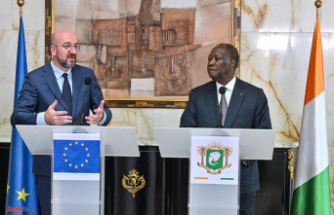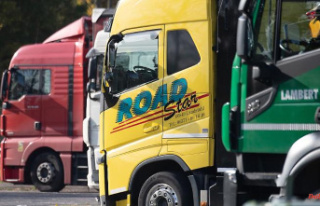"Small livestock also makes crap": It says in the country's "Energy Sparbüchle". The brochure was first published six years ago. So far, this has been moderately interesting, but now - in the threatening gas shortage - such savings tips are in great demand.
Stuttgart (dpa / lsw) - Before the "gas summit" with municipalities, business and suppliers, the green-black state government has developed a bundle of measures to save energy. A working group from different ministries put together the catalogue, which is initially intended to encourage administration to reduce gas and electricity consumption as much as possible.
Announcement: Demand must be reduced
The catalog serves as the basis for the summit on July 25th, at which savings proposals for companies and consumers are to be collected. In view of the gas alert level, households and companies should reduce consumption as much as possible in the summer and increase alternative energy uses, write the officials of the interministerial administrative staff. "The requirement must be reduced in order to get through autumn and winter safely," it says literally.
Office temperature in winter to 18 degrees is under discussion
Specifically, the officials suggest: "One degree Celsius less in room temperature corresponds to an energy saving of six percent. A much lower room temperature than we are used to is often sufficient." In addition, the working group warns in its decision on Monday that 20 degrees Celsius is not necessary everywhere in the administration, for example in offices, kitchenettes, copy rooms, workshops, storage rooms, meeting rooms, vehicle halls, sports halls or indoor swimming pools.
So far, the standard room temperature for light office work is 20 degrees. It is being discussed that the offices of state officials are only heated to a maximum of 18 degrees in winter. The federal government would have to change the workplace ordinance for this to happen. Until then, the country can only appeal that employees come to the office in winter with sweaters and thick socks.
Without Russian gas, you also have to save on hot water
In view of the significantly reduced gas supplies from Russia, the federal government declared the alarm level at the end of June. The emergency plan has three levels: The alarm level now declared is the second. The third would be the emergency level. It is feared that after the maintenance of the Nord Stream 1 pipeline, Russian gas will no longer flow through it and that the situation in Germany will continue to deteriorate.
The catalog of measures also states that the authorities should consider whether some rooms that are not used regularly should no longer be used at all. Hot water should only be used where it is required. "For example, the hot water supply can be shut off completely in sanitary areas."
Gas is converted into electricity - so also save on electricity
The working group also points out "that in Germany 10 to 15 percent of electricity is produced using gas. "Therefore, the reduction in electricity consumption also contributes to gas reduction." The officials suggest no longer using elevators, at most for people with physical disabilities.
Share more home office and office desks
The authorities should also check whether more civil servants can work at home because energy can be saved by eliminating the need to travel there and back. And: In the office, the heating can then be turned down. Flexible working hours should also be extended in the summer if possible - so no air conditioning is needed in the office. In addition, employees are to share desks more often so that fewer rooms are required.
Business trips should - if possible - be avoided by plane and taken by train. If a company car is used, car pools should be formed. Otherwise, the working group refers to the "Energy Saving Booklet" in which the Ministry of the Environment gives practical tips.
SPD insists on investments in modern state buildings
Gernot Gruber, energy expert for the SPD parliamentary group, warned the green-black state government to set a good example. "Now there is a need for investment in energy-saving technology, insulated buildings and photovoltaic systems on state buildings." He couldn't understand why the state was still blocking the installation of balcony or mini solar modules for state buildings." Gruber also suggested that the state government should also expand digital formats for meetings. "It could also help with particularly climate-damaging air traffic set a good example."












